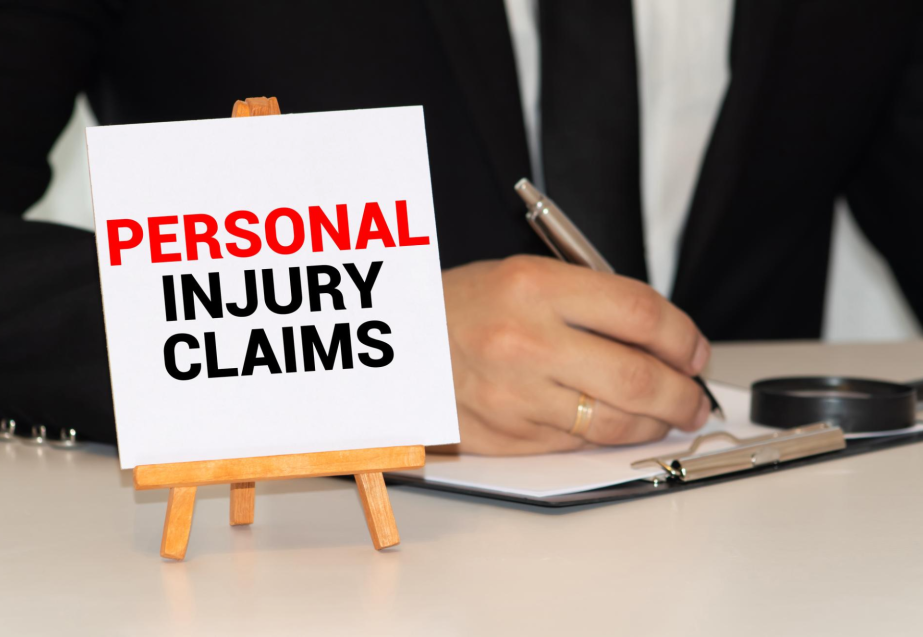
Handling a personal injury compensation claim can be challenging in the UK. This is especially important considering the most recent changes made to the policies governing these claims.
It is crucial to understand when and how to make a compensation claim if you have been hurt in a car accident, at work, or as a result of medical malpractice.
I’ve covered a lot of ground in this post and given you a general idea of what’s needed to file a personal injury lawsuit in the UK. It also offers advice on things to consider before filing a claim as well as details on recent changes to the regulations.
So, keep reading this blog till the end to learn more…
Recent Changes to Personal Injury Claims in the UK
The UK government has modified the regulations about personal injury lawsuits.
The government created these modifications to guarantee equitable and proportionate compensation, decrease fraudulent claims, and expedite the claims procedure.
The implementation of the 2018 Civil Liability Act was one notable change. It has an impact on whiplash claims as well as how the authorities compensate for some injuries.
Key Changes Under the Civil Liability Act 2018
- Whiplash Reforms: The Act introduced a new pricing structure for whiplash injuries brought on by auto accidents. The severity and length of the damage are now factors that determine the cap on compensation amounts. As a result, payments for small whiplash injuries have decreased.
- Increase in the Small Claims Limit: For claims involving traffic accidents, the small claims cap has been raised from £1,000 to £5,000. The upper limit for other personal injury claims has increased from £1,000 to £2,000. Moreover, the small claims court typically handles the cases falling under these limitations. It is less feasible for claimants to retain legal counsel in this case as you are unable to recoup the legal fees.
- Mandatory Medical Evidence: Claimants must provide medical evidence to support their injury claims. This rule aims to reduce fraudulent claims and ensure that compensation is only awarded for genuine injuries.
The Association of British Insurers (ABI) reports a 20% reduction in whiplash claims since implementing the Civil Liability Act 2018. This indicates a significant impact of these reforms on personal injury claims.
When Can You Claim for Personal Injury Compensation?
It would help if you successfully met several criteria to claim personal injury compensation in the UK. Understanding these criteria is essential for determining whether you have a valid claim.
Here are the criteria for claiming personal injury compensation:
- Accident Leading to Injury: The first need is that there have to be events or accidents that lead to personal injuries. This can involve pain to the body, harm to the mind, or both.
- Negligence or Liability: Another party’s negligence or fault must have resulted in the injury. This might apply to a private citizen, business, or government agency. A driver who causes an automobile accident, a careless medical professional, or an employer who neglects to offer a safe working environment are a few examples.
- Injury Impact and Severity: In order to qualify for compensation, an injury must meet a minimum degree of severity. Furthermore, under the new regulations, minor injuries that heal fast could not be eligible for reimbursement, particularly if they are less than the small claims limit.
- Time Limits: There are stringent time constraints in the UK for personal injury claims. Generally, a claim needs to be made within three years of the incident or the date the injury was found. There are, however, some exceptions, such as when it comes to minors or those with limited capacity.
Table: Criteria for a Valid Personal Injury Claim
Criteria | Description | Examples of Valid Claims |
|---|---|---|
| Accident Resulting in Injury | An incident that caused physical or psychological harm | Road traffic accidents, workplace injuries, medical errors |
| Negligence or Liability | The injury was caused by another party’s negligence or fault | Slips and falls due to unsafe premises, faulty products |
| Injury Severity and Impact | The injury must be significant enough to merit compensation | Broken bones, long-term psychological trauma |
| Time Limits | You must make the claims within three years of the incident | Car accident claims, medical negligence within three years |
The Ministry of Justice notes that nearly 70% of personal injury claims are related to road traffic accidents, with the remaining claims arising from workplace accidents, medical negligence, and public liability incidents.
Steps to Take Before Making a Claim
Before proceeding with a personal injury compensation claim, there are several steps you should take to strengthen your case and increase your chances of a successful outcome.
These are the steps that you need to take to prepare to file a personal injury claim:
- Gather Evidence: Firstly, it is very important that you are able to gather all the evidence that you need to file a claim. For instance, these can include photographs of the accident scene, medical reports detailing your injuries, witness statements, and any other relevant documentation.
- Seek Medical Attention: Secondly, even if you think that your injuries are minor and do not need any medical attention, you must seek one. And there is a reason for that. You see, a medical professional can provide a formal diagnosis and treatment plan, which will be vital in proving the extent and impact of your injuries.
- Report the Incident: Thirdly, you must ensure that you reach the right authorities and report the incident to them. For example, if you were in a road traffic accident, report it to the police. If the accident occurred at work, inform your employer and ensure the incident is recorded in the accident log.
- Consult a Legal Professional: Finally, you must understand that the process of filing a personal injury claim is complex. Additionally, the recent changes in the rules and regulations in the process have made it necessary for you to consult with a legal professional. They can provide valuable guidance and support. Furthermore, they can help you understand your rights, navigate the claims process, and ensure you receive the personal injury compensation you deserve.
The Law Society advises that claimants seek legal advice as soon as possible after an injury, as early consultation can improve the chances of a successful claim by 30%.
The Importance of Understanding Your Rights
Knowing your rights regarding personal injury claims is essential to ensure fair treatment and compensation. Additionally, recent changes to the rules highlight the importance of being informed and prepared.
Here are some critical considerations for claimants:
- Understand the Limits: Firstly, you must understand how the small claims limits can play a role in your capacity to get reimbursement for legal expenses. Having the knowledge of this ensures that you know how to deal with and file for compensation. For instance, you might have to represent yourself if your claim is for less than £5,000 for auto accidents and £2,000 for other personal injuries. This is because legal fees are usually not recoupable.
- Understand the Structure of Compensation: In most cases, general damages (for pain and suffering) and special damages (for monetary losses, including medical costs, lost wages, and travel expenditures) are awarded in personal injury lawsuits. Therefore, if you have an idea of the structure of how the authorities compensate the claimants, you will be able to ask for the right amount.
- Keep Up with Changes: Personal injury law is a field that is always changing. Making educated judgments can be aided by keeping up with new laws, rules, and case law developments. It also guarantees that you get paid what you are entitled to.
- Alternative Dispute Resolution: Investigating alternative dispute resolution techniques could be advantageous in some circumstances. In the event of mediation or arbitration, for example, settle your claim more swiftly and affordably.
Which? Legal reports that nearly 40% of personal injury claimants are unaware of the recent changes in claim limits and requirements, underscoring the need for better public awareness and education.
Bottom Line
In summary, it’s critical to keep up with the latest legal advancements while determining whether to bring a personal injury lawsuit in the UK.
In order to make valid claims, you must also be well-prepared and knowledgeable about the prerequisites.
As a result, you might handle the claims procedure more skillfully and increase the likelihood of a successful outcome. All you have to do is stay informed on the evolving field of personal injury law and your rights.
It is crucial to understand when and how to make a compensation claim whether you have been hurt in an automobile accident, at work, or as a result of medical negligence. In this way, you can protect your rights and receive the money you deserve.
Read More…
Everything You Need To Know About Personal Injury Law
The Legal Process Of Filing A Personal Injury Lawsuit In Arizona
How To Find A Personal Injury Lawyer In 7 Steps











0 Reply
No comments yet.